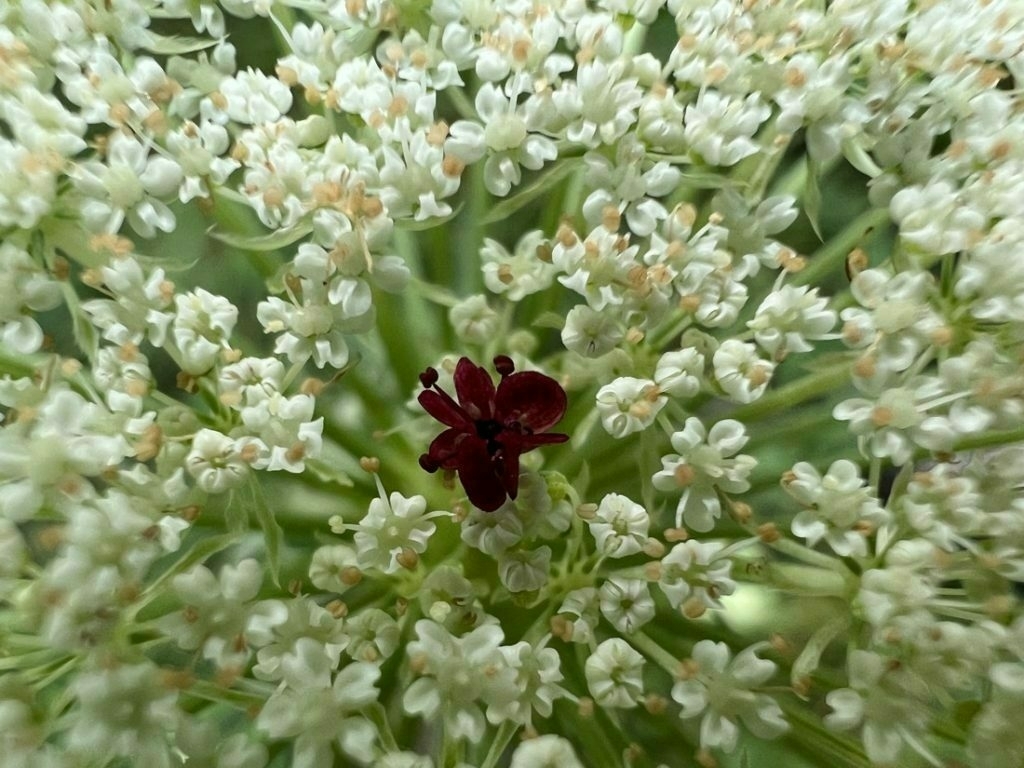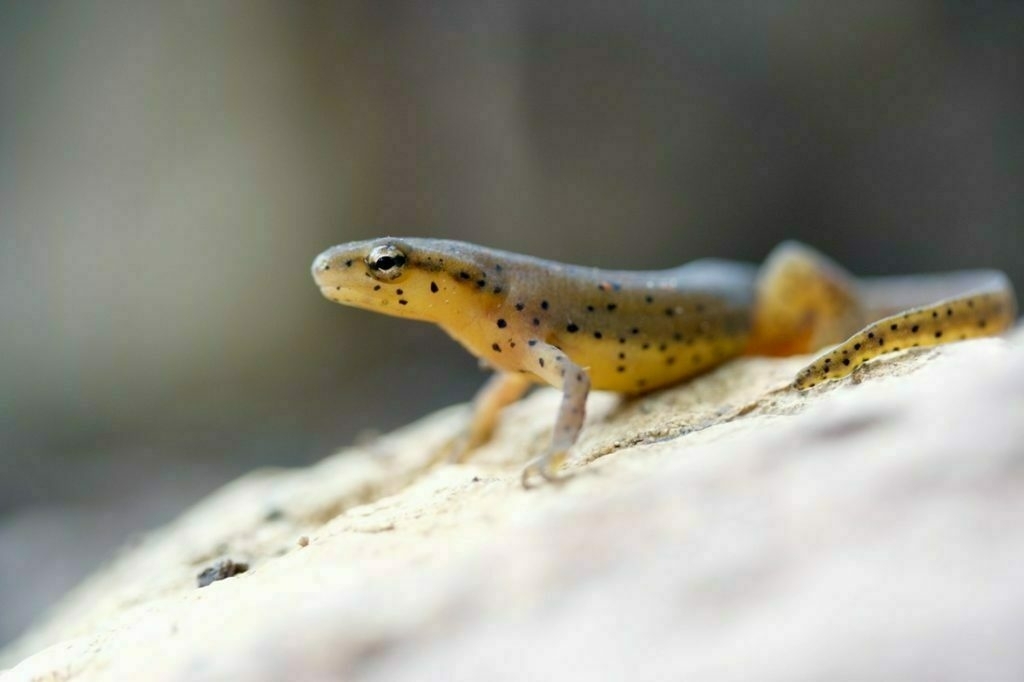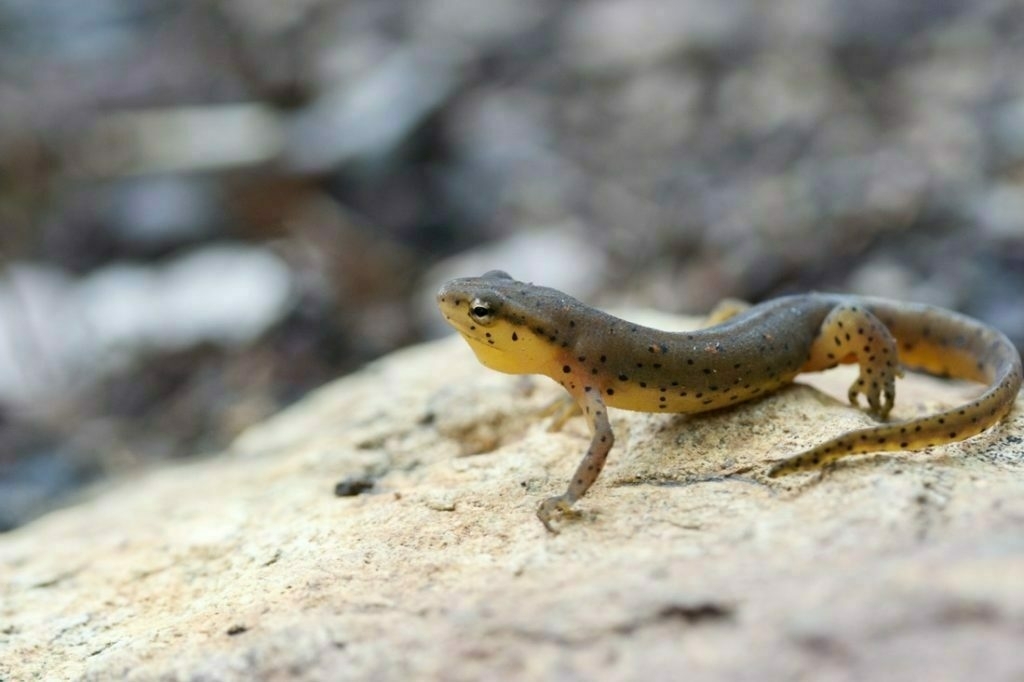Democrats and populism in 2022
As an anarchist I’ve long thought the two party electoral system of the US is deeply, fundamentally flawed. It’s never been a democracy so much as a republic with a veneer of democracy. Of the two parties the Democrats are the ones that are, in recent decades, the party seen as being “left” or progressive. Of course it’s not at all but it has those elements within it and is seen as the best chance for a manifestation of those political expressions. Robert Reich’s article discussing the Democrats in terms of 2022 politics is on point. This bit stood out for me:
The most powerful force in American politics today is anti-establishment fury at a rigged system. There is no longer a left or right. There is no longer a moderate “center”. The real choice is either Republican authoritarian populism or Democratic progressive populism.Democrats cannot defeat authoritarian populism without an agenda of radical democratic reform – a pro-democracy, anti-establishment movement. Democrats must stand squarely on the side of working people against oligarchy. They must form a unified coalition of people of all races, genders, and classes to unrig the system.
Trumpism is not the cause of our divided nation. It is the symptom of a rigged system that was already dividing us.
Pyrrhopappus pauciflorus, desert-chicory
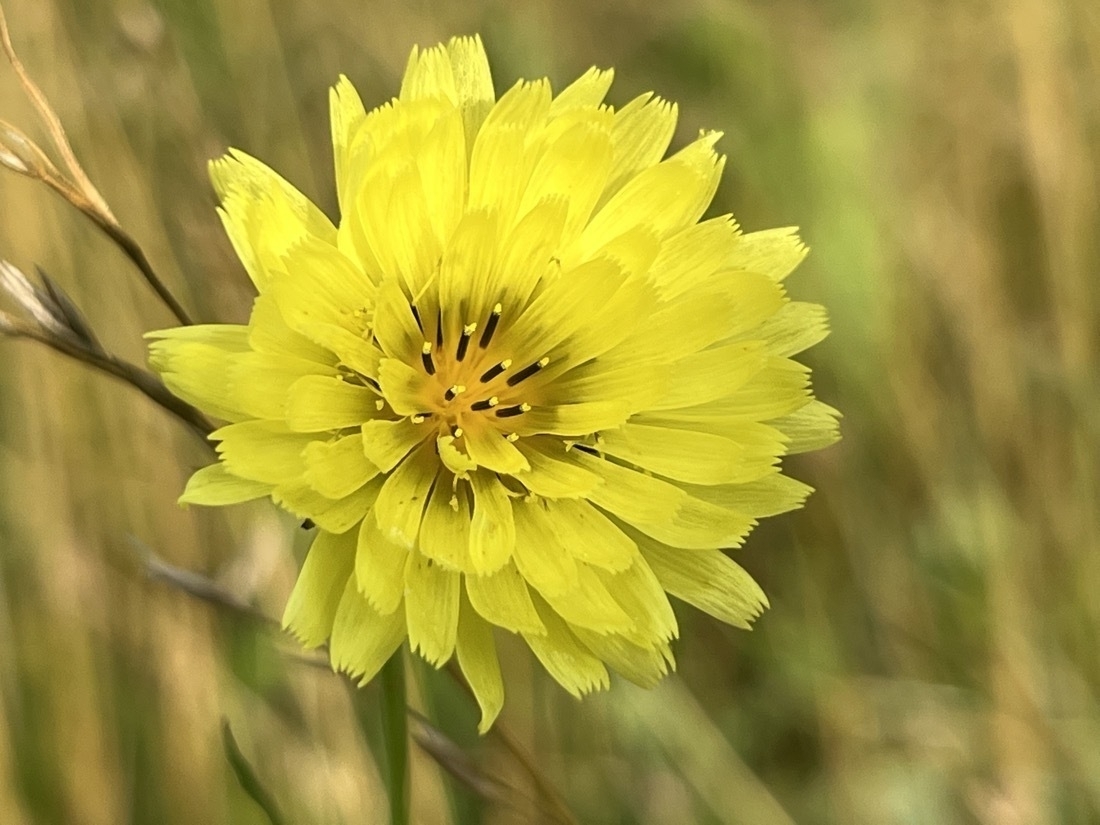
Yeah, I'm not a fan of the Democrats at all. Or the two party system or the system that we have in place now. It needs a complete renovation from the ground up. Even so, this is worth a watch.
Looking south (from North America) at this time of year is looking towards the center of our galaxy. The milky clouds are the dense stars, gas and dust in the disk of the galaxy. Photo taken with the iPhone 13 Pro.
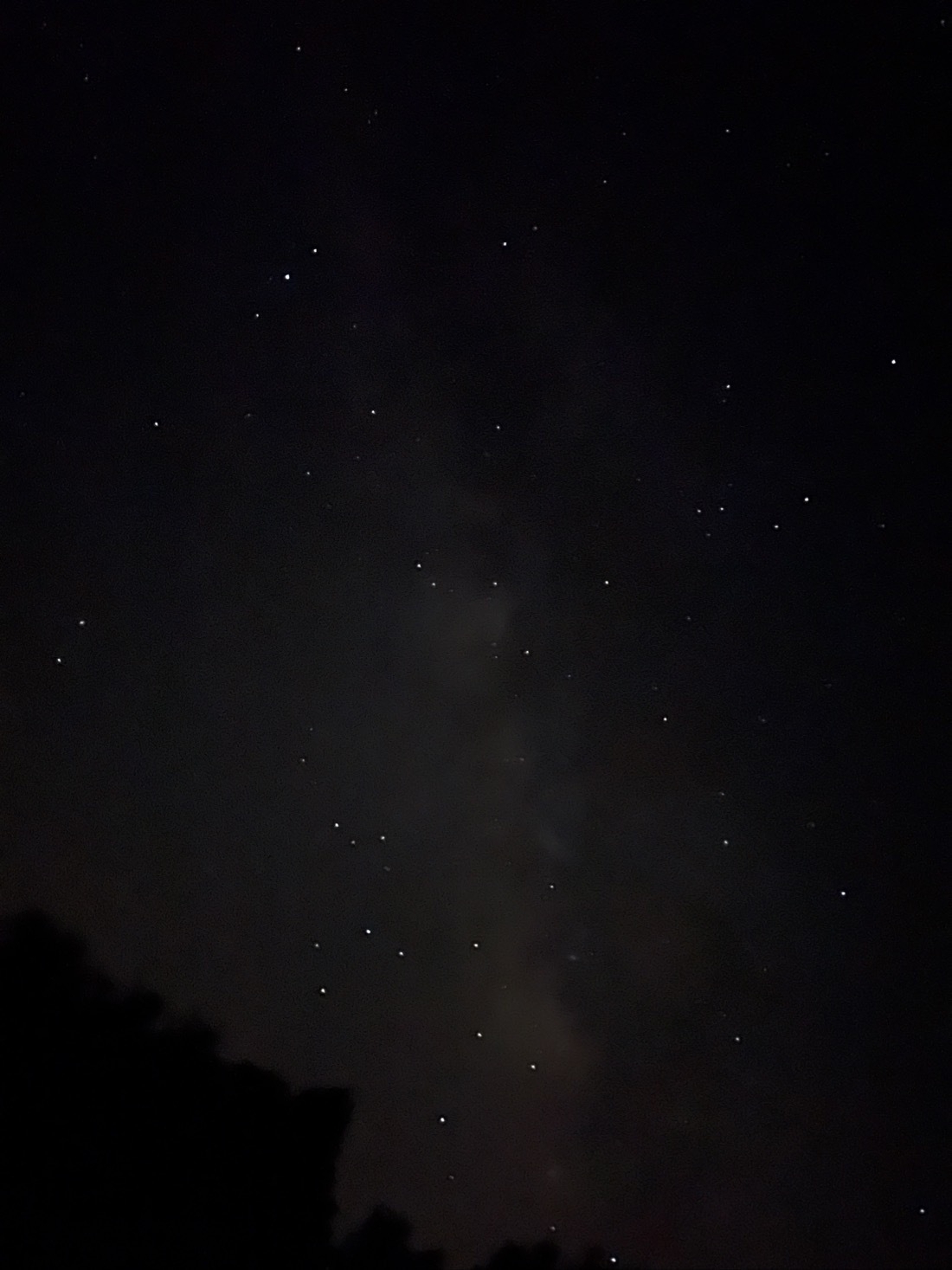
Milky Way
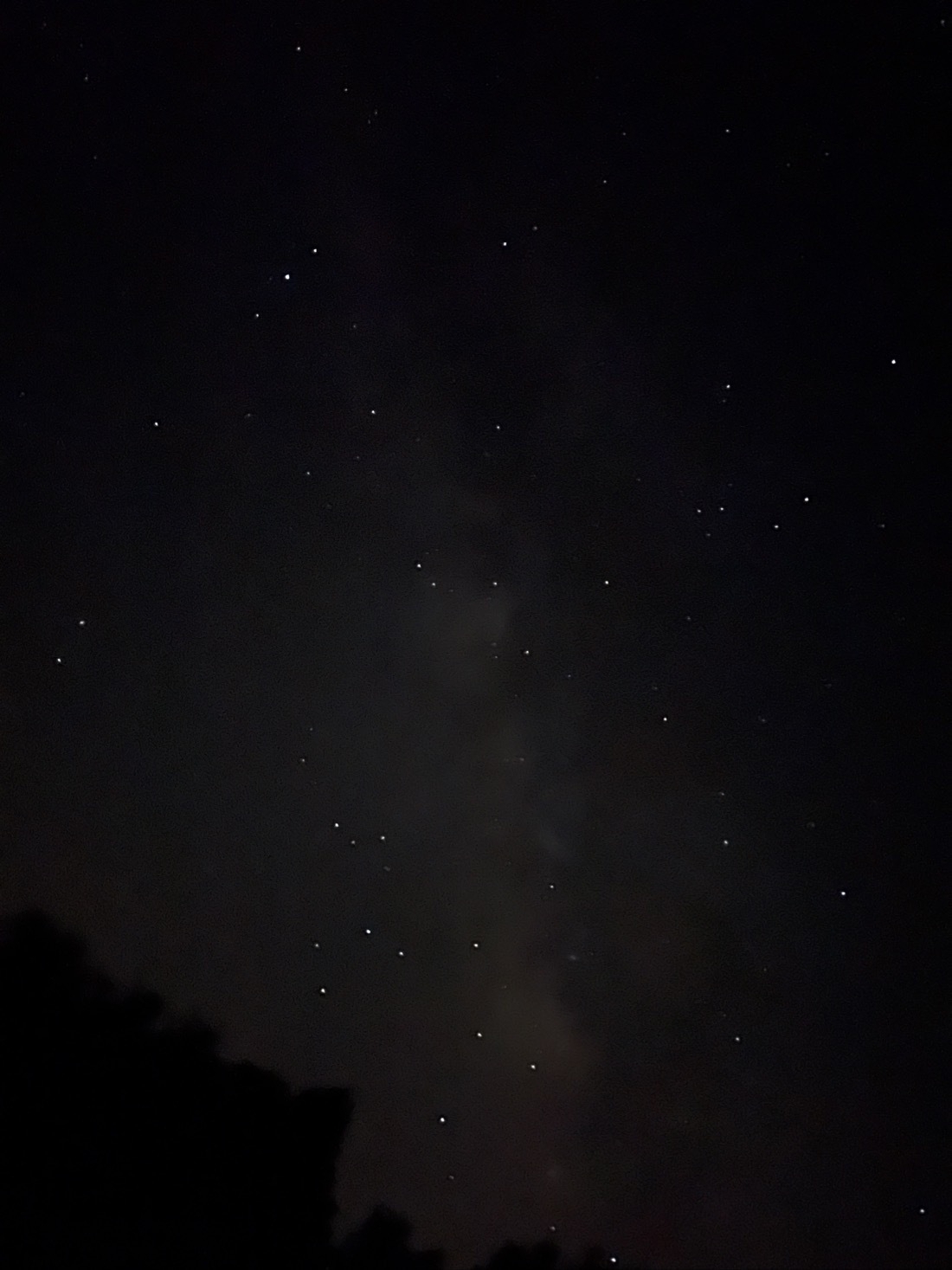
Conjunction 2022

Short, excellent animated video explaining the origin of fossil fuels and providing context for what it means in relation between carbon and climate collapse.
By the throat
UN General Secretary, António Guterres:
He said: “We seem trapped in a world where fossil fuel producers and financiers have humanity by the throat. For decades, the fossil fuel industry has invested heavily in pseudoscience and public relations—with a false narrative to minimize their responsibility for climate change and undermine ambitious climate policies.”
The human world is done as we know it. But we have delayed too long and by we I mean the U.S. which has led the world down the wrong path, blocking progress to the needed changes for decades.
Speaking to the Major Economies Forum, a climate conference organized by the White House, Guterres also castigated governments that are failing to rein in fossil fuels, and in many cases seeking increased production of gas, oil, and even coal, the dirtiest fossil fuel. He said: “Nothing could be more clear or present than the danger of fossil fuel expansion. Even in the short-term, fossil fuels don’t make political or economic sense.” US president, Joe Biden, is traveling to Saudi Arabia to push for more oil production, some EU countries are seeking to source gas from Africa and developing countries around the world, and the UK is licensing new gas fields in the North Sea.
That right there.
Guterres is understood to be furious that, six months after the Cop26 climate summit, and after three dire reports from the Intergovernmental Panel on Climate Change—the “starkest warning yet” from climate scientists—countries and businesses are ignoring the science and squandering opportunities to put the world on a greener path, when renewable energy is cheaper and safer than fossil fuels.
Source: The Guardian
Stage Manager
Matthew Panzarino has an excellent write-up on Stage Manager over at Tech Crunch.
“As a user, you appreciate that you’re not constantly accumulating clutter, you’re not cleaning things up, you’re not managing where things are, you just do what you want to do. And it’s there. And it’s, it’s all managed for you,” says Federighi on their approach to Stage Manager’s design. “It’s clean and focused. Traditional windowing environments are the opposite. They are mess making by default, everything you open contributes to clutter. Everything involves you having to kind of manage where things are and how things might cover each other up and so forth. And then you’re responsible for sort of cleaning up after yourself the whole time.”
[caption id="" align=“aligncenter” width=“1384”] Image courtesy of Apple[/caption]
Image courtesy of Apple[/caption]
Built a new spiral garden bed. Not much planted in it yet: Mint, a purple coneflower and a ground cherry.
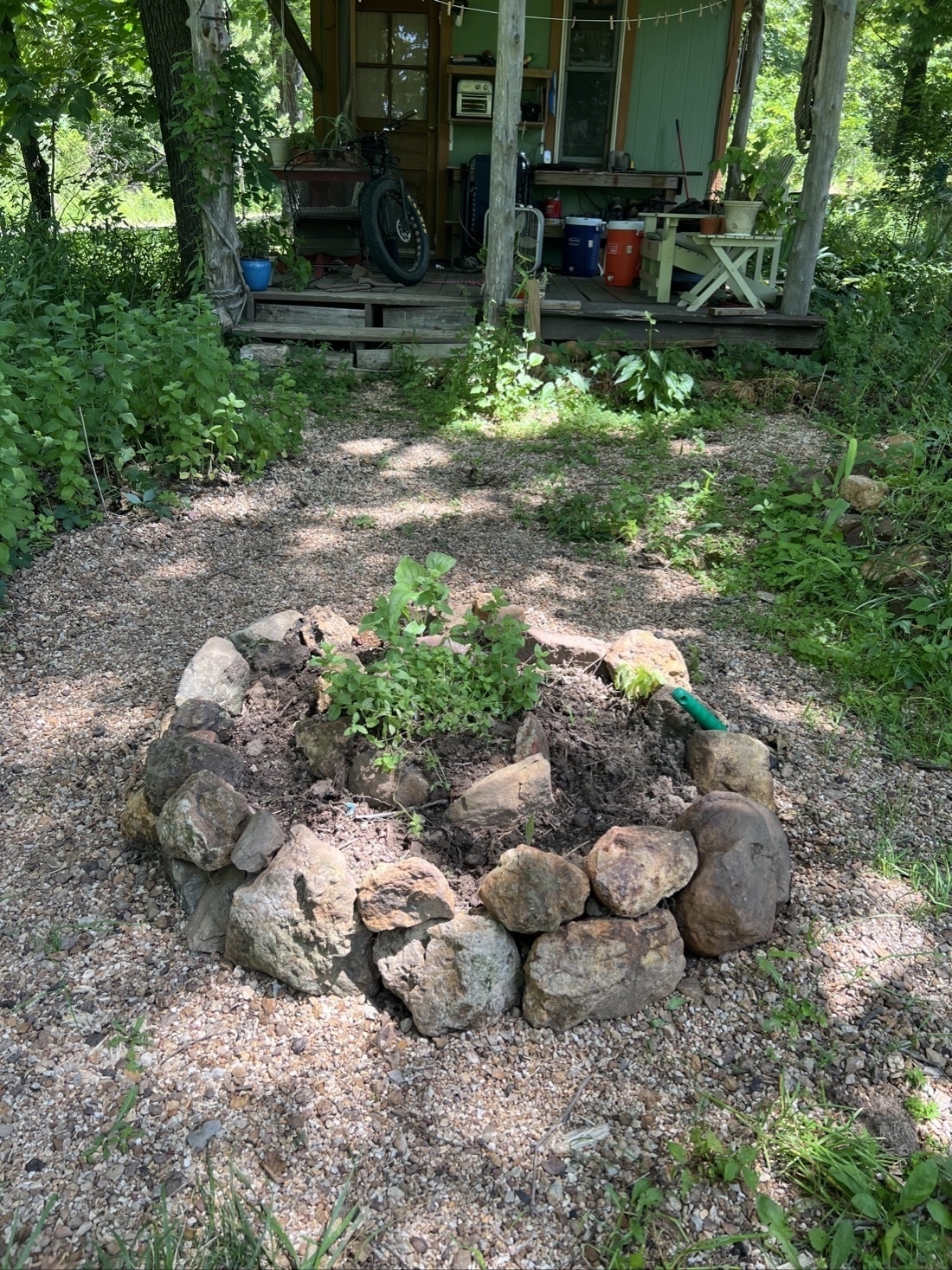
Been a week since WWDC 2022 and I’ve still not put together a proper post. For now I’ll just say, while I’ve been very happy with iPadOS as it is, I’m also excited about Stage Manager and extended desktop support coming in iPadOS 16.
With 10 days of no or little rain, full sun and high temperatures, I’m glad I’ve got all of my young fruit trees (pawpaw below) heavily mulched with cardboard, grass clippings, leaves, and branches to keep the soil cool and moist.
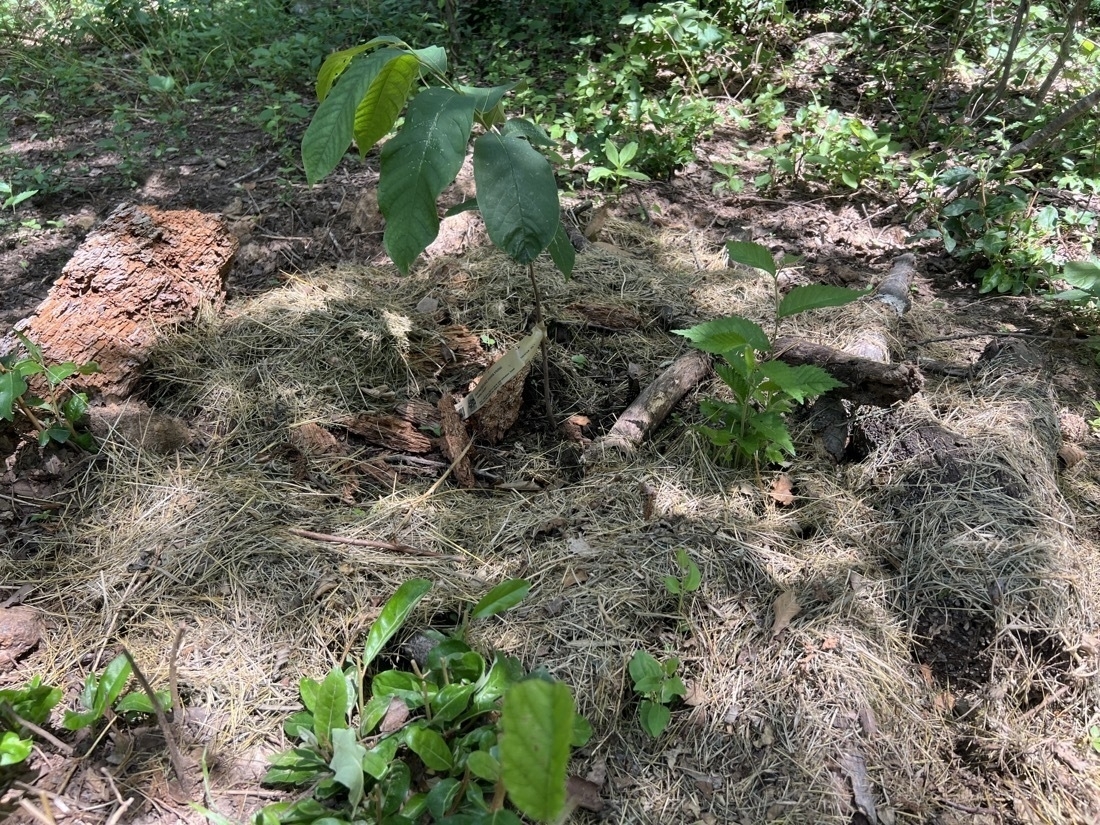
Looking forward to WWDC today, especially the bits pertaining to iPadOS. I'm really very happy with the iPad as my primary computer but improvements are always welcome!
It’s early days in this new reality of climate collapse. For the most part the people I know still live in the old reality. Climate collapse isn’t something they care about. They’re beginning to see it as extremes become the new norm. More drought in some areas, more intense storms, wildfires, and changes in the local weather seem to remind them of the larger global patterns. They're not responding in any meaningful way. Life goes on in the normal way they are used to living.
But for some of us daily life in the early days of climate collapse feels like living with a blaring alarm sounding, in a house on that's on fire. It’s been that kind of alarm for me for more than 15 years. My response has been, in part, to try to live as though it mattered. To live as though my actions were just one person acting along with the larger collective also doing it's part. That person by person, community by community, people would learn and respond to the problem.
In 2022 it's obvious that our response is too little, too slow, too late. It's obvious that in the US, the leading emitter of CO2 to date, government has failed to push in the direction needed at the pace needed. There's little sign that this will change anytime soon. My suggestion is that rather than wait to be told, we begin collective action now. We should be the change we want to see.
What does that look like in daily life? It looks like a life lived with the assumption that fossil fuels are severely restricted, rationed. That material goods will also be severely restricted. It means reusing or doing without. It means thinking about not just reducing waste but eliminating waste. It means conserving energy and material resources as though every little bit matters. Fewer appliance replacements. More careful choices when we put things in our carts.
I'm planning to do a series of posts about what this means for me. And again, yes, yes, I agree, individual consumer choice is not the whole answer. Ideally we continue to pressure government for systemic change, larger change. But in the end, there is no magic wand here. Sure the government create large scale programs for solar and wind energy generation, mass conservation programs, a massive shift towards mass transit, cycling and pedestrian infrastructure. Rationing of air-based travel.
But individual action should not be undervalued. At the end of the day millions of people add up to billions of people and we're not powerless. We need to stop acting like we are powerless. We need to stop waiting to be saved. Individual and cooperative direct action: households adding up to communities and towns and regions etc. We need to make more of an effort to figure out the solutions ourselves.
In my nearby rural town the recycling program was closed because they were having difficulty selling/getting rid of the collected materials. In my case I have some storage space and live alone, so I'm still saving steel and glass in the hopes that one day I'll be able to recycle them. In the mean time, I also re-use glass and compost all paper and cardboard. I've nearly eliminated plastic from my waste stream. It means I have fewer choices and do without some things.

First up, let's talk about soap. Years ago I stopped buying shampoo in plastic bottles. I use Dr. Bronners for all personal hygiene. And recently started using it for dishes too. It works. It's not exactly the same as dish soap formulated in a liquid that is sold in a plastic bottle. But that's the point isn't it. We have to adapt. This one bar of soap does it all and the packaging is paper that I can compost in my garden. Multiply that by millions.
It's different, yes. It's not what many are used to. But it is a simple, quick change that anyone can make. I know that there are powder products being sold in paper pouches that are meant to be mixed with water in the home for different washing purposes. That's another great solution. Imagine stores without shelves upon shelves of plastic bottles holding liquid soaps. Plastic should be banned but until then we can choose to stop buying it. The result is less waste, less energy used, less CO2.
Next time around I think I'm going to delve a bit into food choices in terms of climate, energy, nutrition, packaging, preparation…
Orchard Orbweaver, Leucauge venusta. In the last image the spider has a captured tick in it's web.
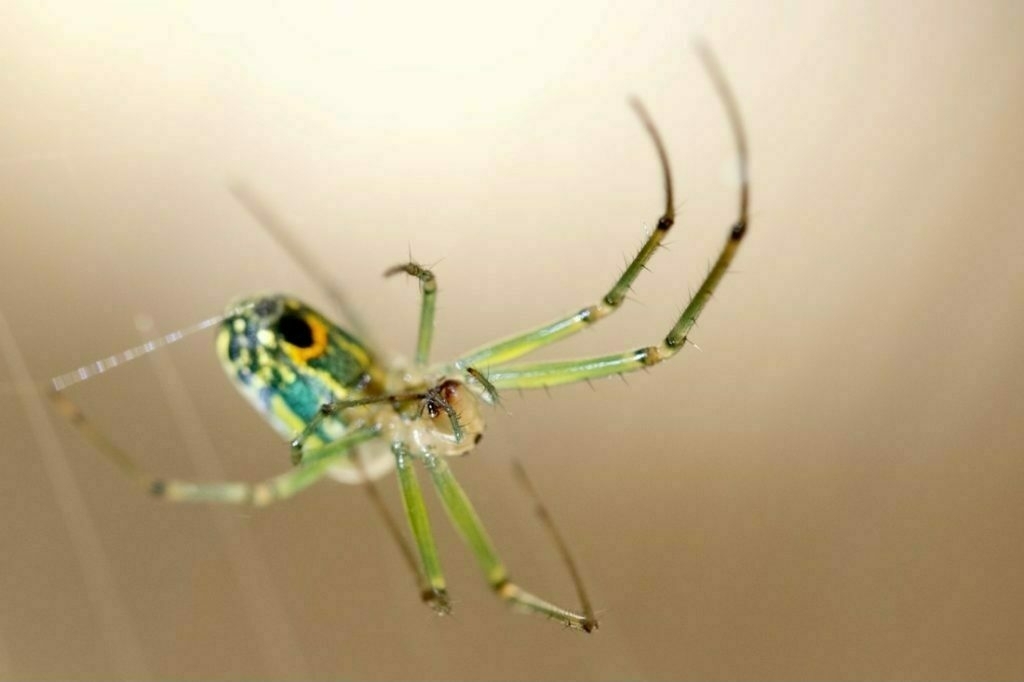
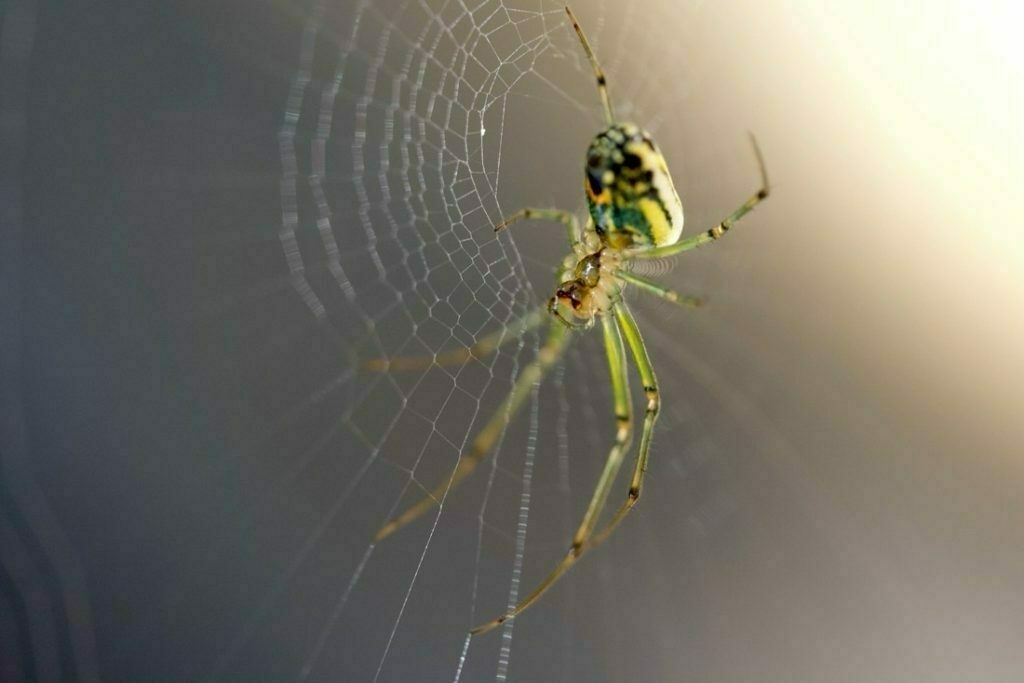
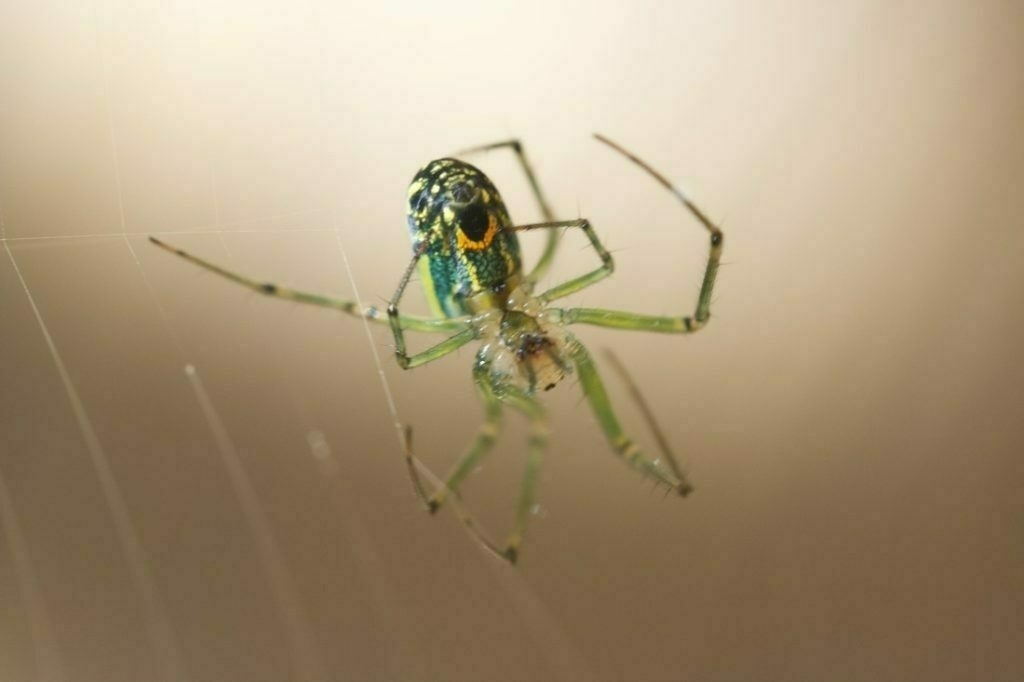
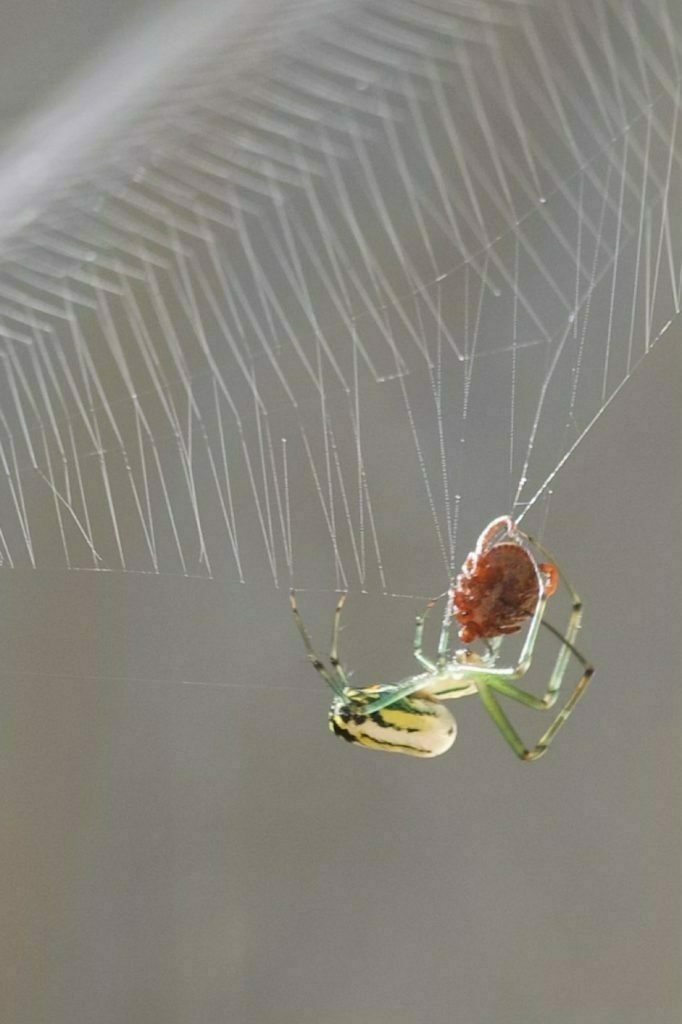
According to Yale Climate Connections over 1.7 billion city dwellers now face multiple days of dangerous heat each year.
“Our main finding, globally, is that urban extreme heat exposure increased 200% over a 34-year period,” says Cascade Tuholske of Columbia University’s Center for International Earth Science Information Network.
